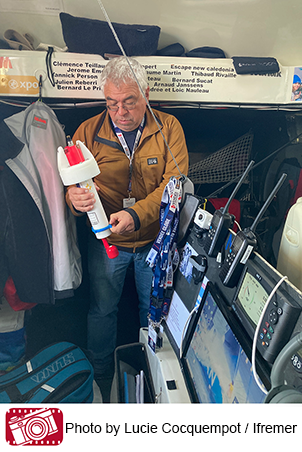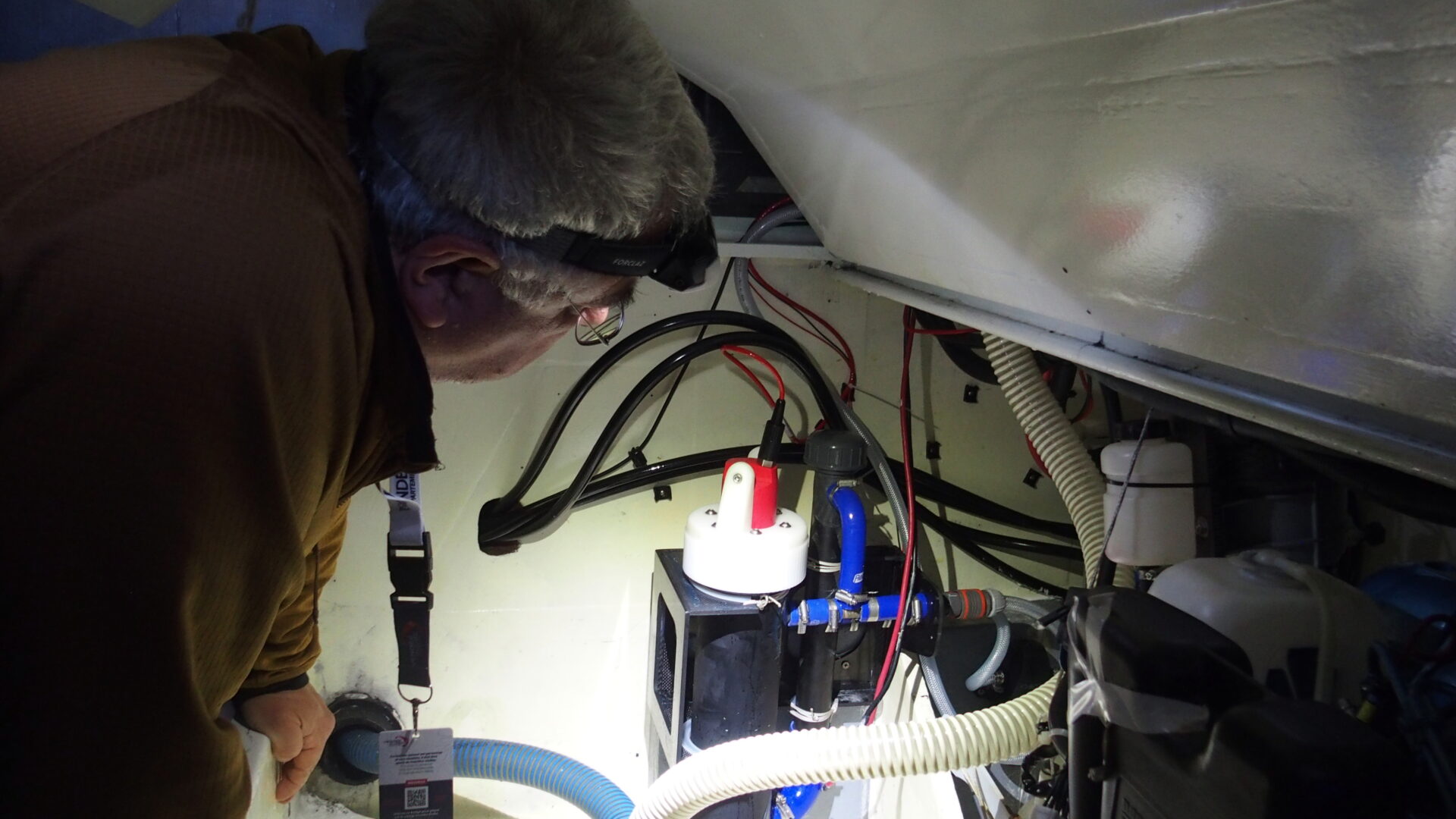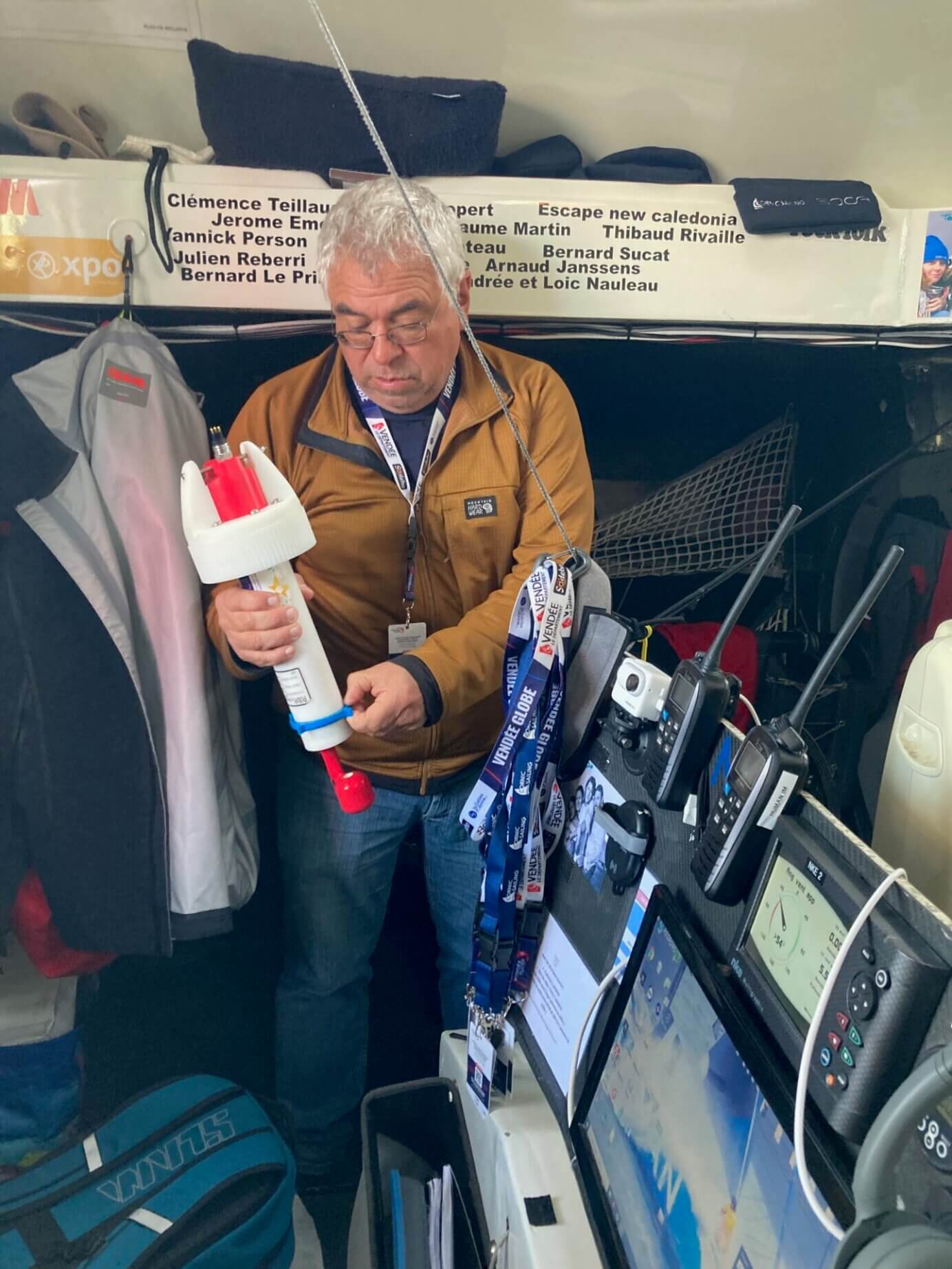
The Vendée Globe is renowned as the ultimate test of solo sailing—non-stop, unaided, and spanning the globe. However, this year’s race goes beyond competition, thanks to the use of oceanographic instrumentation integrated with cutting-edge RBR technology. As these solo sailors navigate the formidable challenges of wind, waves, and ice, they will also contribute to critical oceanographic research.
Ten skippers will deploy advanced NKE Argo profiling floats along the 45000 km course. These 1.7-meter-long, 20-kilogram floats are equipped with RBR CTD sensors to measure conductivity, temperature, and depth as they profile the upper 2km of the water column, carried by ocean currents. Operating on a 10-day cycle, the floats drift at 1000 meters for nine days before descending to 2000 meters and then profiling to the surface. Once at the surface, they transmit collected data back to shore, then descend again to repeat the process.

Additionally, skippers Romain Attanasio and Antoine Cornic have underway sampling systems onboard. These systems, developed by scientists from #Ifremer, #OceanoVox, #RBR, and #UBO FabLab, pump surface seawater into a custom chamber where an RBRconcerto³ C.T.D measures conductivity and temperature data at one-minute intervals. Although the instrument can sample continuously at up to 32Hz, the one-minute interval balances sufficient data resolution with the satellite transmission costs and availability.
The RBRconcerto³ C.T.D is particularly suited for this mission. It is simple to operate, highly configurable, and includes internal power and memory as a backup to external connectivity. Designed for scientific precision, it is also exceptionally robust—essential for withstanding the extreme conditions of the Vendée Globe.
Didier Clec’h, speaking from RBR France office near the race’s start and finish points, highlights the broader significance:
“Sailing races have become invaluable for oceanographers to monitor the physicochemical changes in seawater, which are rapidly affected by global warming. This collaboration between the Vendée Globe, IMOCA, and UNESCO, as part of the UN Decade for the Oceans (2021–2030), doesn’t aim to turn racing boats into research vessels. Instead, it leverages these extraordinary platforms crossing major ocean currents to enhance a growing observation network. The contribution of the Vendée Globe 2024 to science enables the deployment of instruments and data collection in rarely visited regions—data critical to the global scientific community.”


